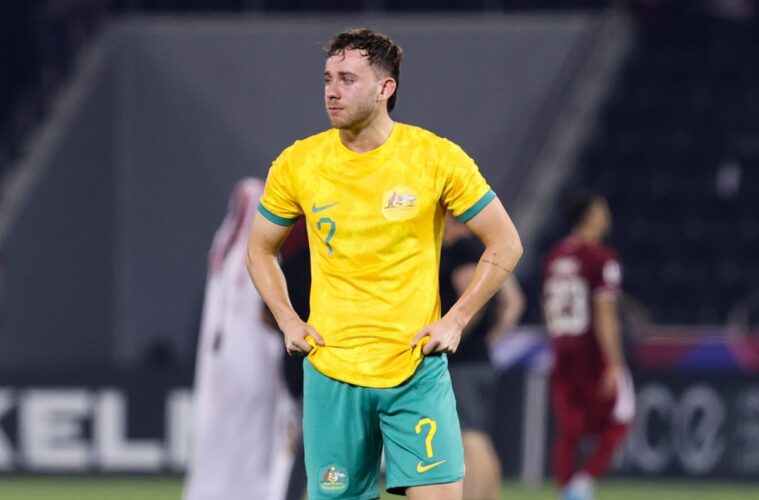The Olyroos have failed to join the Matildas in qualifying for the Paris Olympics by some margin, bowing out of the AFC Under 23 Asian Cup before the knockout stage after failing to score in any of their three group games.
It continues a disappointing recent history for the Olympic men’s side, who’s trip to Tokyo in 2021 will stand as their only participation across the past five Games once Paris commences. Global football’s growth has seen the task become harder; from Barcelona 1992, Australia did not miss until London 2012.
The importance of the Olympics in football can be debated, as could the strength of a squad that lacked Nestory Irankunda, Alexander Robertson and Alessandro Circati among numerous others, for various reasons. But to slide out of a continental tournament so early, so meekly, when the growth of neighbouring countries is already of concern, cannot be ignored.
‘Everything on the spur of the moment is a disaster, this is the case all over the world when a certain generation looks like it’s struggling. We can look to France and say their Under 21 side has underperformed for decades, and yet they’re one of the greatest senior teams in Men’s world football, Robbie Thomson of Network 10 & Paramount+ told Box2Box.
‘It’s not a disaster, we’re not regulars at this level, and Olympic football is its own beast, anyway. I think it’s better to focus on the fact we’re out at the Group stage of the Asian Cup, which is disappointing irrespective of what it qualifies you for.
‘It’s bitterly disappointing to see we’re being overtaken by many other countries in Asia. Indonesia [who defeated Australia 1-0] is something of a sleeping giant but they’ve shown they’re waking up, and perhaps we’re not, yet.’
Graham Arnold made no secret of the importance he felt the Tokyo ‘21 games played in the development of his underage squad into senior Socceroos. Eighteen months later he took nine of that group to the senior World Cup, to the surprising expense of more senior players, and led them to the knockout stages.
Tony Vidmar’s generation of Jacob Farrell, Ryan Teague and the Kuol brothers appeared on track to give emulating their predecessors of Riley McGree, Harry Souttar and Keanu Baccus a real shake, finishing runners up to South Korea at the West Asian Football Federation friendly tournament in Saudi Arabia last month. There was also the third-placed success of the Maurice Rivello invitational tournament in Toulon last year.
‘It is a bit of a head scratcher considering the quality of the squad. A lot has been said about the players that weren’t there but you’ll always have players missing for whatever reason. There was still quality there.
‘It doesn’t matter if it’s a ‘B-Team’, it’s your team, you’re wearing the colours, and they’ve got coaches there to show the way of playing irrespective of who’s there. The important thing is that pathways at club level are there, we’ve got to see young players playing in the A-League, which most of these guys are, or trying to get minutes overseas.’
On that front, there remains significant optimism that a number of this generation will develop into senior Socceroos off the back of lengthy club careers. Jacob Farrell has been a mainstay in a successful Mariners side for three seasons, Nicholas Milanovic and Jake Girdwood-Reich are among those enjoying breakout A-League campaigns, and the Kuol brothers retain their superstar potential should they get their club careers humming again.
‘In terms of player development, club football is where it’s at, not representative football. It’s a handful of matches versus a whole season. This team did brilliantly at the Toulon tournament, [the U21’s] did brilliantly in Marbella.
‘It didn’t happen this time for A, B, C reasons and they will be looked at, but club development is the key and we’ve seen some of these players coming through are excellent at club level, and that’s where the money is.’

